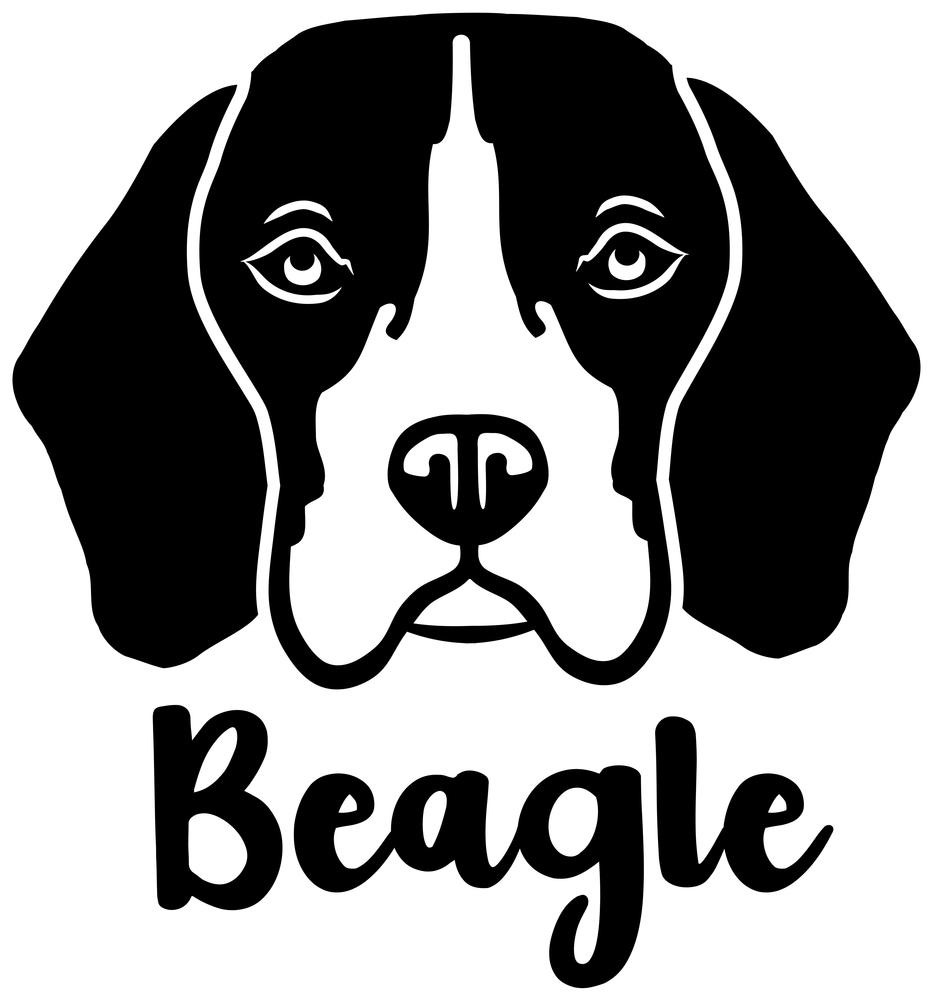
Introduction: The Importance of Regular Vet Visits for Beagles
As a Beagle owner, your pet’s health is a top priority. Regular vet visits are essential in ensuring your Beagle lives a long, healthy, and happy life. In this article, we will delve into the importance of regular vet visits and how they contribute to your Beagle’s overall health care.
- Understanding the importance of regular vet visits
Regular vet visits are not just for when your Beagle is sick. They are an opportunity for your vet to conduct a thorough examination of your Beagle’s health. This includes checking their weight, teeth, eyes, ears, and coat. These check-ups can help detect any potential health issues early, before they become serious problems. Regular vet visits also allow your vet to provide necessary vaccinations and preventive treatments to keep your Beagle safe from common diseases.
- How regular vet visits contribute to Beagle health care
Regular vet visits play a crucial role in your Beagle’s health care. They provide a comprehensive health check that can reveal early signs of illnesses, such as heart disease or diabetes. Regular vet visits also ensure your Beagle is up-to-date with vaccinations, protecting them from harmful diseases. Additionally, these visits provide an opportunity for your vet to offer advice on diet, exercise, and other aspects of care, tailored to your Beagle’s specific needs.
In conclusion, regular vet visits are an essential part of your Beagle’s health care. They not only help detect potential health issues early but also provide preventive care and valuable advice to keep your Beagle in the best possible health. So, make sure to schedule regular vet visits for your Beagle and give them the care they deserve.
Understanding Beagle Health Check-ups
Beagle health check-ups are an essential part of ensuring your furry friend’s overall well-being. These check-ups are comprehensive assessments that help identify any potential health issues early, ensuring your Beagle stays healthy and happy. Let’s delve into what happens during a Beagle health check-up.
What Happens During a Beagle Health Check-up?
During a Beagle health check-up, your vet will conduct a series of examinations and tests. Here’s a breakdown of what to expect:
- Physical examination: This is the first step in a Beagle health check-up. The vet will check your Beagle’s weight, heart rate, and temperature. They will also examine the skin, coat, eyes, ears, teeth, and gums for any signs of disease. This thorough physical examination helps detect any abnormalities that might indicate a health problem.
- Diagnostic tests: Depending on the results of the physical examination, your vet may recommend diagnostic tests. These can include blood tests, urine tests, and x-rays. These tests provide a more in-depth look at your Beagle’s health and can help detect diseases that aren’t visible during a physical examination.
- Discussion of Beagle’s lifestyle and diet: Your vet will also discuss your Beagle’s lifestyle and diet. This includes the type of food your Beagle eats, how often they exercise, and their general behavior. This discussion can provide valuable insights into your Beagle’s overall health and well-being, and the vet can provide recommendations for any necessary changes.
Understanding what happens during a Beagle health check-up can help you better prepare for your Beagle’s visit to the vet. Remember, regular health check-ups are crucial for early detection of potential health issues and ensuring your Beagle’s long-term health.
The Importance of Regular Health Check-ups for Dogs
Regular health check-ups for dogs, particularly Beagles, are crucial for several reasons. These include early detection of potential health issues, preventive care, and ensuring up-to-date vaccinations. Let’s delve into these aspects in more detail.
- Early detection of potential health issues
Regular health check-ups allow veterinarians to detect potential health issues in your Beagle at an early stage. This is important because early detection often means a better prognosis and less invasive treatment. For example, a simple blood test can reveal the early stages of kidney disease, which can be managed with diet and medication if caught early.
- Preventive care for Beagles
Preventive care is an essential part of a Beagle’s health check-up. This includes regular deworming, flea and tick prevention, and dental care. Regular dental check-ups, for instance, can prevent periodontal disease, which is common in Beagles. Preventive care not only helps to keep your Beagle healthy but also saves you from costly treatments in the long run.
- Ensuring up-to-date vaccinations
Vaccinations are a vital part of your Beagle’s health check-up. They protect your dog from a variety of serious diseases such as rabies, distemper, and parvovirus. Regular check-ups ensure that your Beagle’s vaccinations are up-to-date, providing them with the best protection against these diseases.
In conclusion, regular health check-ups are an essential part of maintaining your Beagle’s health. They allow for early detection of potential health issues, provide preventive care, and ensure that your Beagle’s vaccinations are up-to-date. So, make sure to schedule regular vet visits for your Beagle to keep them happy and healthy.
Common Beagle Health Issues
Beagles, like any other breed, have their own set of health issues that they are more prone to. Being aware of these common health problems can help you take better care of your furry friend and ensure they live a long, healthy life.
Identifying Common Beagle Health Issues
It’s important to know the signs and symptoms of common health issues in Beagles. This way, you can seek veterinary help as soon as possible. Here are some of the most common health issues that Beagles may face:
- Obesity: Beagles love to eat and can easily become overweight if their diet and exercise are not properly managed. Obesity in Beagles can lead to other serious health issues like diabetes and heart disease. Signs of obesity in Beagles include difficulty in walking, shortness of breath, and an inability to feel the ribs when you touch their side.
- Ear infections: Beagles have long, floppy ears that can trap moisture and bacteria, leading to ear infections. Symptoms of ear infections in Beagles include scratching of the ear, head shaking, and a foul smell from the ear.
- Joint problems: Beagles are prone to joint problems like hip dysplasia and elbow dysplasia. These conditions can cause pain and difficulty in moving. Signs of joint problems in Beagles include limping, difficulty in getting up, and reluctance to run or jump.
Remember, early detection of these health issues can make a significant difference in your Beagle’s health and quality of life. If you notice any of these symptoms, it’s important to consult with a vet immediately.
How Regular Vet Visits Can Help Detect These Issues Early
Regular vet visits play a crucial role in maintaining your Beagle’s health. They can help detect common health issues early, allowing for prompt treatment and better outcomes. Let’s delve into how this works:
- Regular monitoring of weight and overall health
- Early detection and treatment of infections
- Regular checks for joint health and mobility
Beagles are prone to obesity, which can lead to other health issues like heart disease and diabetes. Regular vet visits ensure your Beagle’s weight is monitored consistently. Vets use specialized scales and tools to accurately measure your Beagle’s weight and compare it with healthy standards. They also assess the overall health of your Beagle, checking for signs of illness that you might miss.
Beagles are known for their floppy ears, which unfortunately make them susceptible to ear infections. Regular vet visits can help detect these infections early. Vets are trained to spot the subtle signs of ear infections, such as redness, swelling, or unusual odor. Early detection means early treatment, preventing the infection from worsening and causing discomfort to your Beagle.
Joint problems are another common issue in Beagles. Regular vet visits allow for consistent monitoring of your Beagle’s joint health and mobility. Vets can perform physical exams and sometimes even use imaging technologies like X-rays to assess your Beagle’s joints. If any issues are detected, your vet can recommend appropriate treatments or interventions to maintain your Beagle’s mobility and quality of life.
Regular vet visits are a small investment that can have a big impact on your Beagle’s health. By catching potential issues early, you can help ensure your Beagle lives a long, happy, and healthy life.
Vet Check-up Frequency for Beagles
One of the most important aspects of ensuring your Beagle’s health and happiness is regular vet check-ups. These visits allow your vet to monitor your Beagle’s health and detect any potential issues early. But how often should you take your Beagle to the vet? Let’s break it down by age group.
How Often Should You Take Your Beagle to the Vet?
Just like humans, Beagles’ healthcare needs change as they age. The frequency of vet visits should be adjusted accordingly to provide the best care for your furry friend at every stage of their life.
- Regular schedule for puppies: Beagle puppies are full of energy and curiosity, which can sometimes lead to accidents or illnesses. Therefore, they need to visit the vet more frequently. A typical schedule includes visits at 8, 12, and 16 weeks old for vaccinations and general check-ups. After that, monthly visits until they reach 6 months old are recommended. These visits will help ensure your puppy is growing healthily and receiving necessary vaccinations.
- Adult Beagle veterinary care schedule: Once your Beagle reaches adulthood (around 1 year old), they should have a vet check-up at least once a year. This annual check-up usually includes a physical examination, dental check, and any necessary vaccinations. It’s also a good time to discuss any behavior changes or concerns you may have.
- Senior Beagle vet visit frequency: As Beagles get older, they may develop age-related health issues. Therefore, it’s recommended to increase the vet visits to twice a year for senior Beagles (usually around 8 years old and above). These visits can help detect and manage any potential health problems early, ensuring your Beagle’s golden years are as comfortable as possible.
Remember, these are general guidelines and individual Beagles may require more frequent visits depending on their health condition. Always consult with your vet to determine the best care schedule for your Beagle.
| Age Group | Vet Visit Frequency |
|---|---|
| Puppy (0-6 months) | Monthly |
| Adult (1-7 years) | Annually |
| Senior (8 years and above) | Bi-annually |
Regular vet check-ups are a key part of maintaining your Beagle’s health. By following the recommended schedule, you can help ensure your Beagle lives a long, happy, and healthy life.
Conclusion: Securing Your Beagle’s Health
As we wrap up our discussion on the health of Beagles, it’s crucial to re-emphasize the key points we’ve covered. Your Beagle’s health is a top priority, and there are several steps you can take to ensure they live a long, happy, and healthy life.
- Reiteration of the importance of regular vet visits
- Final thoughts on Beagle health care
Regular vet visits are a cornerstone of your Beagle’s health. These check-ups allow your vet to monitor your Beagle’s health, catch potential issues early, and provide preventative care. According to the American Veterinary Medical Association, regular vet visits can help extend your pet’s life by up to 3-4 years. So, never underestimate the power of a routine check-up!
Beagle health care is more than just regular vet visits. It’s about providing a balanced diet, ensuring they get plenty of exercises, and giving them the love and attention they deserve. Remember, a healthy Beagle is a happy Beagle. So, invest time in understanding your Beagle’s health needs and be proactive in their care. Your furry friend will thank you!
In conclusion, securing your Beagle’s health isn’t a one-time task. It’s a lifelong commitment that requires consistency, knowledge, and love. By following the tips we’ve discussed in this article, you can ensure your Beagle lives a long, healthy, and happy life. Here’s to many more years of wagging tails and wet noses!






